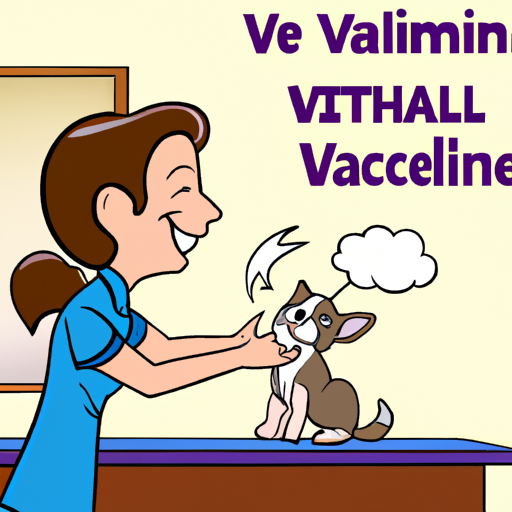As a caregiver to a furry friend, one of the most significant responsibilities you have is ensuring their health by keeping up with their vaccination schedule. Vaccines protect your dogs from deadly diseases, and knowing when your pups need their shots is crucial. This guide will delve into the details of the different vaccines your dog needs and at what age they should get them.
1. Understanding the Importance of Vaccination
Vaccination is a cornerstone of your dog’s healthcare. It provides immunity against various diseases that can be fatal or severely debilitating for your pet. Let’s take a closer look at why it’s crucial.
The Role of Vaccines
Vaccines contain antigens that mimic disease-causing organisms in a dog’s immune system but don’t actually cause illness. When a vaccine is administered, it prepares your dog’s immune system to fight off invasion from the actual disease. If your dog is later exposed to the disease, their immune system is equipped to recognize and combat it.
Core vs. Non-Core Vaccines
Vaccines are categorized into two types:
- Core vaccines: These are essential for all dogs, regardless of their location or lifestyle. Examples include Rabies, Distemper, Parvovirus, and Adenovirus.
- Non-core vaccines: These are optional and depend upon the dog’s lifestyle, exposure risk, and geographical location. Examples include Bordetella, Lyme disease, and Leptospirosis.
2. The Puppy Vaccination Schedule
Puppies are highly susceptible to diseases, making vaccinations a critical part of their early life. This section covers the vaccination schedule for the first year of your dog’s life.
| Age | Vaccine |
|---|---|
| 6-7 weeks | Distemper, Parvovirus |
| 10-12 weeks | DHPP (Distemper, Hepatitis, Parainfluenza, and Parvovirus) |
| 12-24 weeks | Rabies |
| 14-16 weeks | DHPP |
Remember, the timing, doses, and type of vaccines should be tailored to the individual dog’s needs. Always consult with your vet for the appropriate schedule.
3. Adult Dog Vaccination Schedule
Once your pup reaches adulthood, they still need regular shots, although not as often. The adult dog vaccination schedule varies depending on the vaccine and your dog’s age, lifestyle, and health.
- DHPP: Boosted every 1-2 years
- Rabies: Boosted every 1-3 years
- Non-core vaccines: Boosted every year or as recommended by your vet
4. Senior Dog Vaccination
Senior dogs, like puppies, have a weakened immune system and may require additional vaccinations. However, there’s no one-size-fits-all vaccination schedule for senior dogs. Your vet will assess your dog’s health and lifestyle before prescribing a vaccination regimen.
5. Risks and Side Effects of Vaccination
While vaccines are generally safe, they do have potential risks and side effects. Most side effects are minor and short-lived. These may include fever, sluggishness, loss of appetite, or allergic reactions. Severe reactions are rare, but if your dog shows signs of difficulty breathing, swelling, or hives, seek immediate veterinary attention.
Frequently Asked Questions (FAQs)
Below, we’ve included some common questions and their answers to help you further understand your dog’s vaccination needs.
Q1: Can I vaccinate my puppy at home?
While some vaccines can be bought and administered at home, it’s recommended to have vaccinations carried out by a professional vet. They can ensure the vaccines are stored correctly, administered properly, and handle any immediate adverse reactions.
Q2: What if my adult dog missed a vaccination?
If your dog missed a shot, consult your vet immediately. They can help you get back on track with your dog’s vaccination schedule.
Q3: Can vaccinations make my dog sick?
Some dogs might experience mild symptoms like fever or sluggishness after vaccination, which should subside in a day or two. However, if symptoms persist or worsen, consult your vet immediately.
Q4: Are there natural alternatives to vaccinations?
While some natural remedies can boost your dog’s immune system, they don’t provide the specific protection against diseases that vaccines do. It’s essential to consult with your vet before making any decisions about your dog’s health regimen.
In conclusion, vaccination is a crucial part of maintaining your dog’s health and longevity. As a caregiver, staying informed about their vaccination schedule can help ensure they lead a healthy, happy life.



